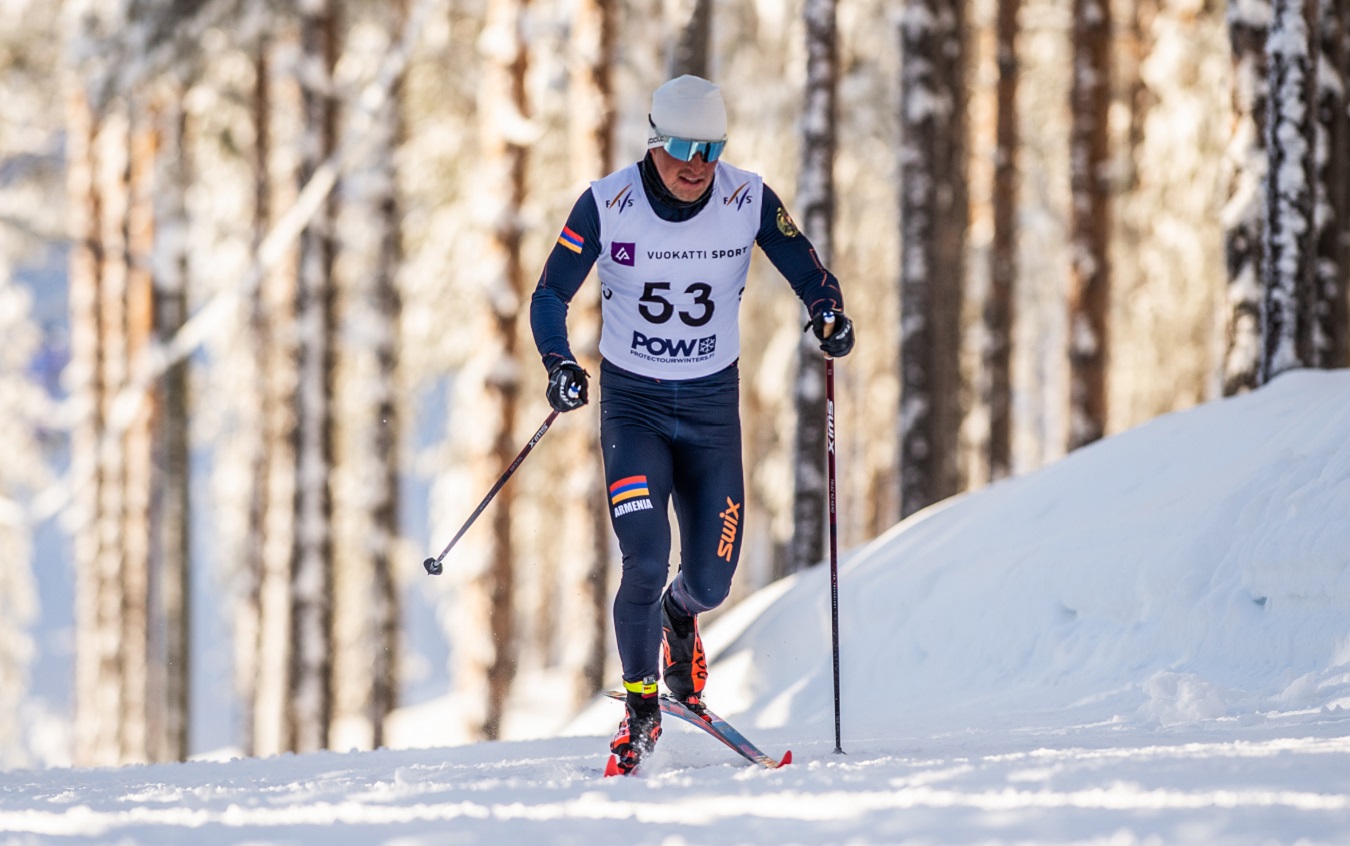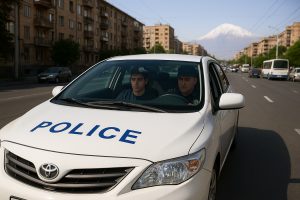The athletes of Ashotsk will never replace the pleasure of training in the open air with anything else, at the altitude of more than 2000 meters above sea level. In 2020, during the lockdown in all over the country, the generosity of nature towards the people of Ashotsk became more than obvious.
While the athletes living in Yerevan and in different settlements of the republic were impatiently waiting for the opening of gyms, cross-country skier Mikayel Mikayelyan with his friends was training every day.
“We ran on roller skis every day, we used to climb mountains․․․ If you train in the highlands, you will have oxygen starvation. Later when the training takes place in the lowlands, you immediately feel the positive impact,” Mikael told Ampop Media during the interview.
Mikael, a multiple champion of the Armenian skiing championship, participant of the Olympic Games, almost did not attend the gym before the Covid either․ The training supposed to be conducted in the gym was conducted in the attic of his own house, which has been turned into a gym.
“Skiing is one of the sports that requires daily training. Even if one does not train for 1-2 days in summer, he/she will feel the consequences in winter, during competitions, the endurance immediately falls,” says the athlete.
Armenia have 6 participants in the 24th Winter Olympic Games to be held in Beijing on February 4-20 this year. Four of the participants are skiers and Mikael is one of them.
To the delight of athletes and sports fans, these games were not canceled․ They will take place, though in rather harsh conditions. The World Cup, for example, which was to take place again this year on January 12 2022, in France was canceled. Due to the pandemic, France had closed its borders.
The biggest problem caused by COVID-19 in the field of sports was, unfortunately, the closed gyms and borders. The restrictions posed in 2020 have been gradually lifted, but there are still countries that are not in a hurry to open their borders.
Train, even in the open air
In the first half of 2020, when the pandemic broke into Armenia, the first restrictions came into force․ The sports world immediately felt the impact of those restrictions. The local and international championships were canceled one after another, the number of medals brought to Armenia from different forms of sports sharply decreased.
“In 2020, all the events were postponed, and the sport-educational process was disrupted, as all the gyms and sports stadiums were closed. There was a serious problem with the international championships, as the borders of the countries were closed. But in 2021 there were no particular obstacles,” Narine Shahbazyan, the Secretary General of the Athletics Federation of Armenia, said during the interview with Ampop Media.
As long as there was no opportunity to go to gyms and sports stadiums, athletes and coaches were looking for alternative ways to train. Athletes performing in indoor sports trained in outdoor areas.
Arayik Baghdadyan, Secretary General of the Wrestling Federation of Armenia, confirms that the wrestlers trained in open areas, in spite of difficulties.
Figure skaters trained in isolation for about 1.5 years. They were looking for ways to keep fit, wherever it was possible to find ice.
“For about 1.5 year we did not participate in almost any competition, we only organized training camps so that people could at least train in isolation. Later when the championships resumed, there were cases when our athletes could not participate due to positive COVID-19 cases. For example, in 2021 Slavik and Samvel Hayrapetyans did not participate in the World Figure Skating Championships in Sweden for that reason,” says Melanya Stepanyan, President of the Armenian Figure Skating Federation.
It is not only figure skaters who have been deprived of the opportunity to participate in international championships due to being infected with COVID-19.
The athlete was not the only victim
Roxana Zakharyan has been attending the gym regularly for several years. At the very beginning of the restrictions conditioned by COVID-19 when the gyms were closed, she could not attend. She says there was no fear of getting infected because both she and the gym staff were vigilant․ She was convinced that the anti-pandemic rules were observed.
However, the pandemic kept many from deciding to go to the gym, especially in 2020.
“People were scared in the beginning. When we started to explain that water is safe, when we showed how we regularly disinfect the fitness machines, attendance slowly started to activate. The process of gaining trust took about 3 months, from July to September in 2020,” Davit Hayrapetyan, the director of “Insport” sports and health resort, tells Ampop Media.
David notes that after 2020, the total turnover has decreased by about 20-30%. It is difficult to say to what extent the pandemic and the war influenced the situation․
“We are now fighting not to close, figuratively speaking, we do not receive income.”
Concerns about the new restrictions, which came into force on January 22, have increased. He says there will be a problem with the clients who are not vaccinated and will not bring PCR.
“In that case, we will have to go to court, because we have already signed a contract with them, that is, on the one hand we cannot ban entry, and on the other hand, due to the new restrictions, we cannot allow them to enter. It will be a hopeless situation.”
The representatives of the sports world are now backwards in the course of the pandemic, in parallel repairing the damages caused in 2020-2021.
Text by Lilit Poghosyan
Infographic by Karine Darbinyan
# COVID19
© The copyright of stories and visualizations on Ampop.am belongs to “Journalists for the Future” NGO. It is forbidden to use Ampop’s content and images without active hyperlinks to the source website. Uploading of infographics and images of Ampop.am is possible only in case of an agreement reached with JFF.
Փորձագետի կարծիք
First Published: 16/02/2022










